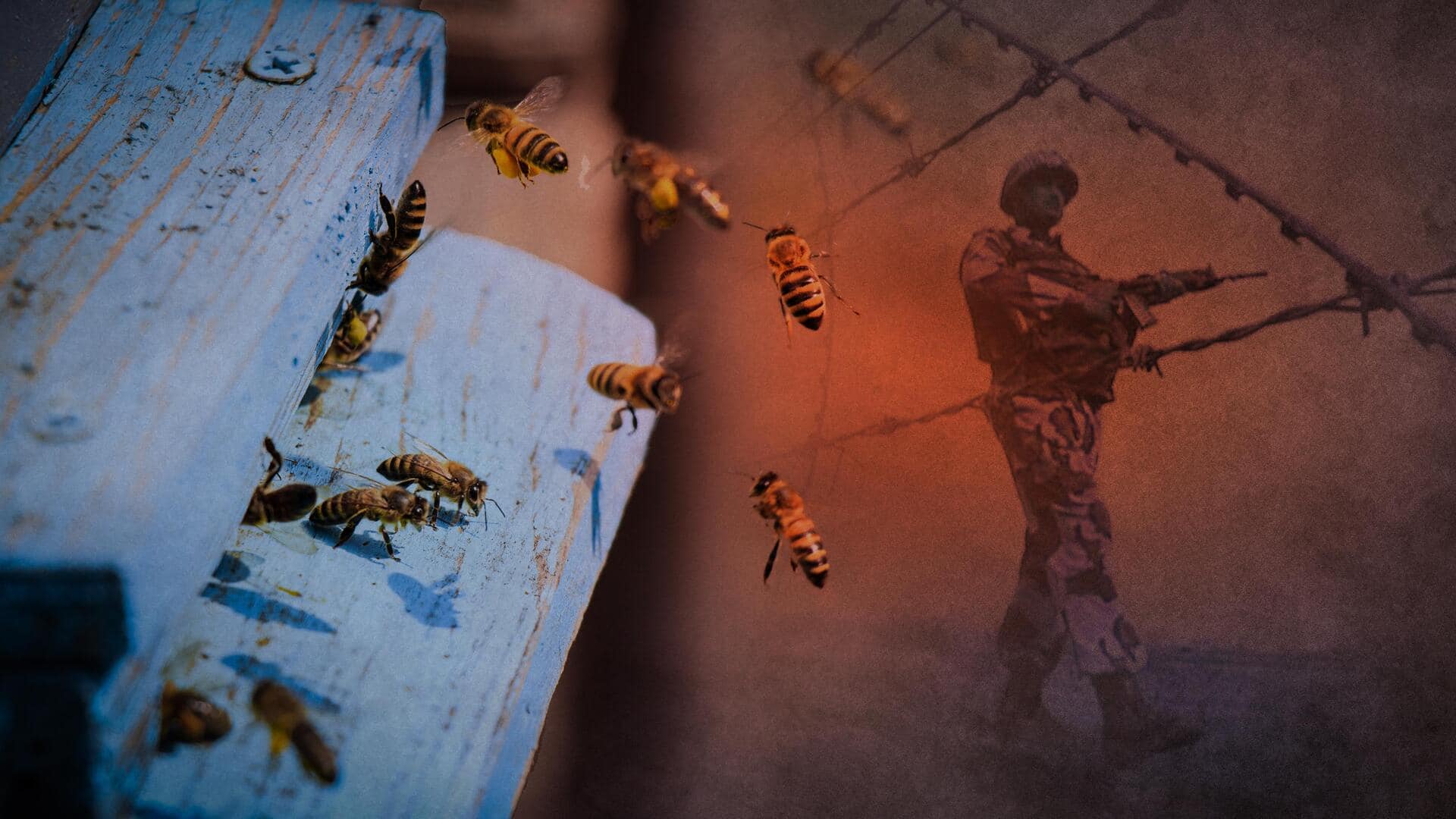
Why BSF is 'deploying' bees on the India-Bangladesh border
What's the story
The Border Security Force (BSF) has installed beehives on the India-Bangladesh border fence in West Bengal in a first-of-its-kind project, PTI reported.
The move is reportedly aimed at improving border security and creating local jobs in the border areas of the state.
The project has been launched by the BSF's 32nd Battalion in Nadia district.
But how will the bees help the BSF and the locals? Here we briefly look at the project.
What Next?
Deterrence to cross-border crimes
The border areas of West Bengal's Nadia district are reportedly prone to cross-border crimes like cattle, gold, silver, and narcotics smuggling.
Of the 4,096km India and Bangladesh border share, West Bengal accounts for about 2,217km.
Officials claimed that installing beehives at regular intervals along the fence would prove a deterrent to such activities.
They said it would protect the border, as any disturbance or movement around the beehives could trigger a bee swarm attack.
Details
Employment generation for locals
Saplings of medicinal plants like tulsi, ekangi, satmuli, ashwagandha, aloe vera, and mustard are being planted by the force personnel, along with the locals, in the border areas.
Per BSF, honey from the beehives would be sold through BSF Wives' Welfare Association shops, benefiting the local community and generating revenue.
Recently, a public camp was also organized in Kadipur village of Nadia, where experts informed locals about the project, beekeeping, and its benefits.
Details
Ayush Ministry supports BSF initiative
The BSF started the initiative with the support of the Ministry of Ayush, which supplied beehives and expertise to attach them to the alloy-made "smart fence," per PTI.
An official requesting anonymity stated that the bee boxes are being installed on the fence at regular intervals and in smuggling-prone, vulnerable areas. However, the exact number of boxes was not disclosed.
This project falls under the Center's "Vibrant Village Programme" (VVP), which focuses on developing remote areas.
Facts
Positive impact of project on agriculture, fruit industry
The ministry noted the project would have a positive impact on beekeeping and mango tree fruit quality in the area.
Locals reported that mango trees have not been yielding good-quality fruits lately.
However, beekeeping in the border area could lead to higher-quality fruit production, increasing the villagers' income.
Bees play a vital role as pollinators in agriculture, contributing to crop production needed to feed the global population.
Poll